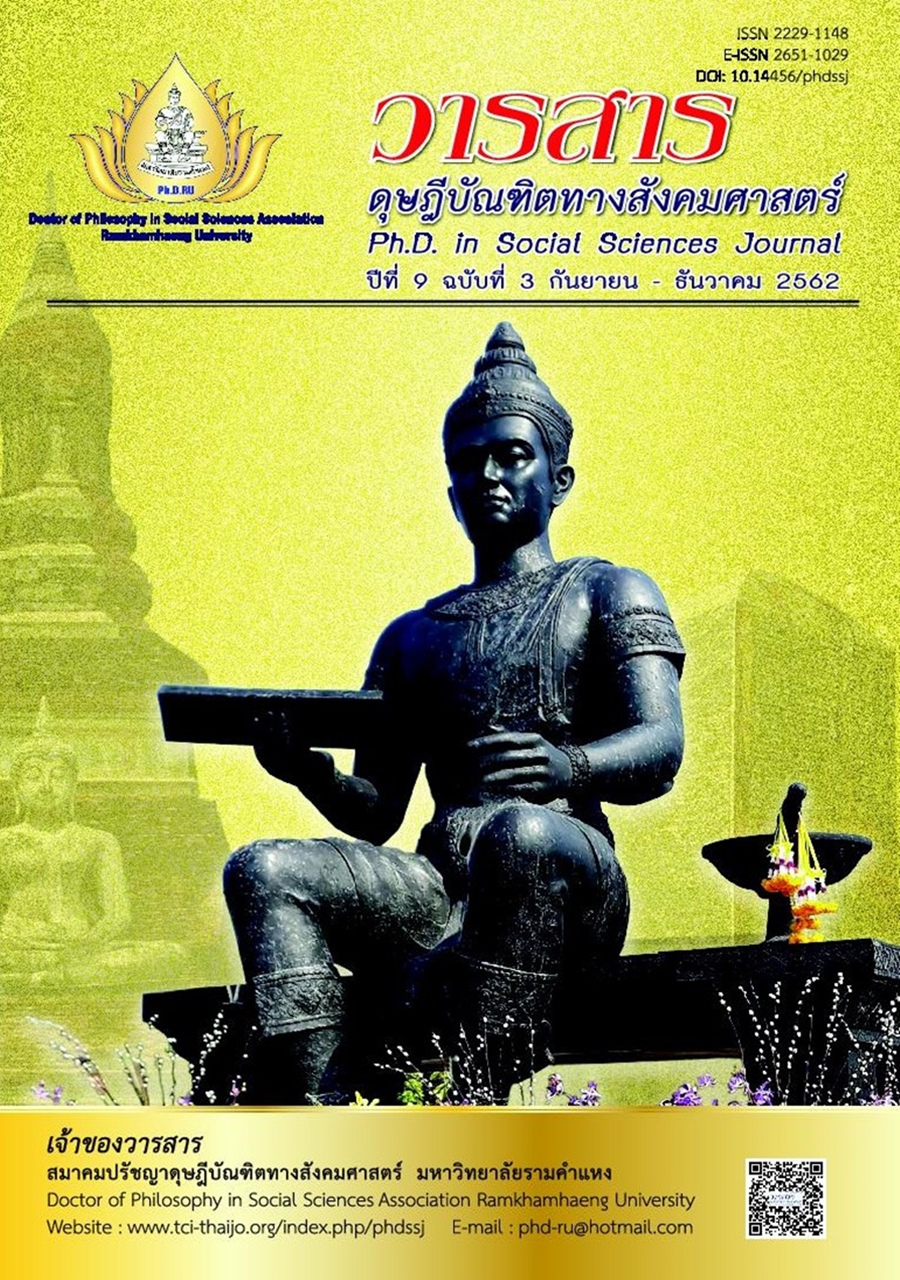The Effects of a Training Program on Development and Attitudes Towards Counseling for Prathom Sueksa Six Teachers in Schools Under the Jurisdiction of the Primary Educational Service Area Offices in the Lower Northeastern Region
Main Article Content
Abstract
The purpose of this study were : (1) a training program for skills development and attitudes towards counseling for Prathom Sueksa Six. The researcher also examines (2) the effects of this program for skills development and attitudes towards counseling for Prathom Sueksa Six. The sample population consisted of 18 Prathom Sueksa Six. While the Mann-Whitney U test was used during the experiment and for the follow-up period.
Findings are as follows:
1. The teachers in the experimental group prior to the commencement of the training program and after participating in the training program for the development of skills and attitudes towards counseling exhibited differences in test scores on skills and attitudes towards counseling at the statistically significant level of .01.
2. The teachers who participated in the training program and those who did not evinced differences in scores on skills and attitudes toward counseling at the statistically significant level of .01.
3. After participating in the training program and in the follow-up period, participant teachers did not display differences in skills and attitudes towards counseling.
4. The results of the observation of the skills of the teachers after participating in the training program are as follows: Eight of the nine ability in the aspect of attention skills at a good level. For all nine participants, ability in the aspects of listening skills, questioning skills, repeating skills, reflecting skills, interpreting skills, clarifying skills, informing skills, and summarizing skills was expressed at a very good level.
Article Details
Academic articles, research articles, and book reviews in the Ph.D. in Social Sciences Journal are author’s opinions, and not the publisher’s, and is not the responsibility of the Ph.D. in Social Sciences Journal Philosophy Association, Ramkhamhaeng University. (In the case that research is done on human, the researcher has to be trained in Ethics for Doing Research on Human Training and has to produce the evidence of the training).
References
Chatsuppakul, K. (1986). Basic counseling. Bangkok: Thai Watana Panich. [In Thai]
Chullasap, N. (2008). Basic counseling (3rd ed.). Songkhla: Thaksin University, Faculty of Education. [In Thai]
Holcomb-McCoy, C. C. (2000). Multicultural counseling competencies: An exploratory factor analysis. Journal of Multicultural Counseling and Development, 28(2), 83-97.
Krejcie, R. V., & Morgan, D. W. (1970). Determining sample size for research activities. Educational and Psychological Measurement, 30(3), 607-610.
Ministry of Education. (2009). Guidelines for student development activities core education curriculum B.E. 2551. Bangkok: Author. [In Thai]
Phetsai, P. (2004). A study and development of counseling competencies of counseling teachers. Doctoral dissertation of education, Srinakharinwirot University. [In Thai]
Supmee, W. (2007). Consultation process: Steps, relationships, skills (2nd ed.). Bangkok: Chulalongkorn University, Faculty of Psychology. [In Thai]
Supmee, W. (2008). Introduction to techniques of counseling (Unit No. 11, 5th ed.). Nonthaburi: Sukhothai Thammathirat Open University Press. [In Thai]
Tepharat, P. (2004). The effects of a micro-counseling training program on self-efficacy in crisis counseling by the relief team of the Thai Red Cross Relief and Community Health Bureau. Master's thesis of counseling psychology, Ramkhamhaeng University. [In Thai]
Wrenn, C. G. (1951). Training of vocational counseling workers. Journal of Counseling and Development, 29(6), 414-419.


